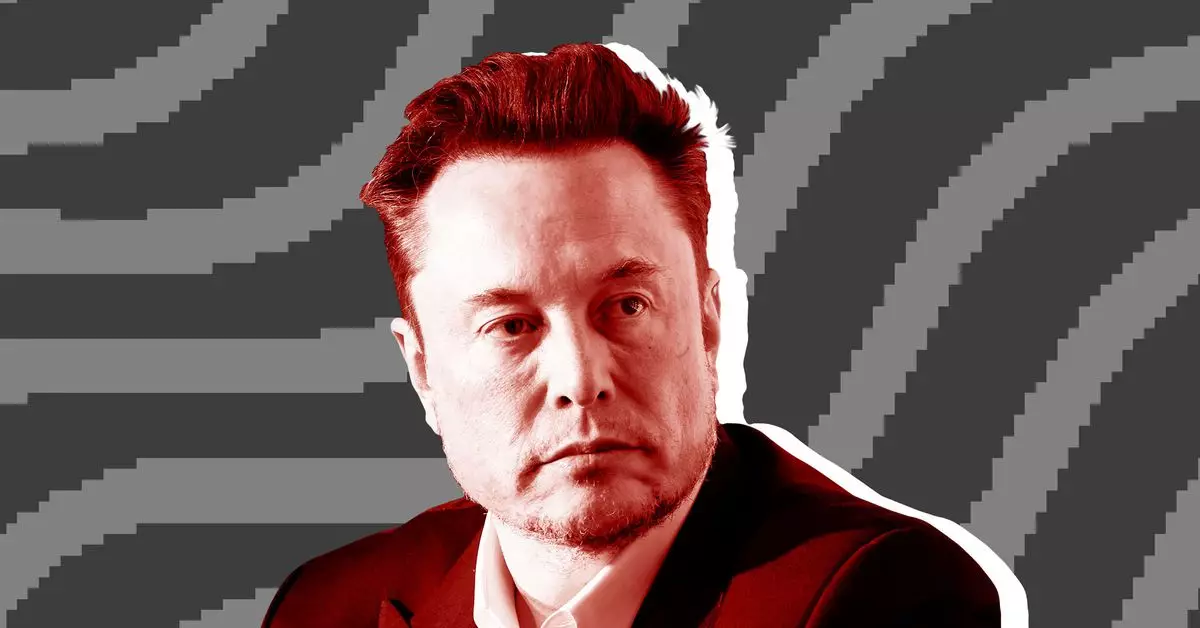The recent appointment of Elon Musk and Vivek Ramaswamy to lead the newly established Department of Government Efficiency (DOGE) under the Trump administration marks a significant shift in how government operations could be perceived and managed. This initiative aims to streamline bureaucratic processes and cut down on unnecessary expenditures, indicating a bold attempt to revolutionize the existing governmental landscape. However, amidst this ambition lies a host of questions regarding its implementation and potential impacts on society.
On the surface, the mission of the DOGE is straightforward: to reduce government inefficiencies, eliminate superfluous regulations, and restructure Federal Agencies to be more effective and accountable to taxpayers. Trump’s announcement encapsulates the long-held Republican desire to recalibrate the government’s approach, drawing on free-market principles and entrepreneurial strategies. The stated objective of collaborating “outside of Government” raises eyebrows; the operational dynamics among these leaders and the traditional bureaucratic frameworks remain largely undefined. Will this new structure create more efficient processes, or will it further complicate the relationship between the White House and established agencies?
Potential Challenges Ahead
Elon Musk’s track record in the private sector, particularly with innovations like Tesla and SpaceX, suggests he has the vision to enact significant changes. However, the feasibility of cutting $2 trillion from the budget is daunting. It raises questions about which areas of spending will be targeted—defense, healthcare, or social security—and what consequences these cuts might have on everyday Americans. Musk himself has acknowledged that these reductions could bring about short-term financial challenges. Critics argue that while the government’s waste is an undeniable issue, the reality of executing such broader reforms poses a substantial risk of disruption.
Interestingly, public sentiment surrounding the DOGE initiative seems polarized, reflecting broader societal divisions. Many conservatives view Musk and Ramaswamy as credible advocates for change, while critics warn that relying on business-minded leaders to resolve systemic issues could overshadow essential, nuanced approaches needed in governance. The dramatic uptick in Dogecoin prices post-election underscores the intertwining of political developments with cryptocurrency markets, suggesting that both local and global economic perspectives could be shaped by this new directive.
A Historical Perspective
Historically, government restructuring initiatives have both succeeded and failed, often depending on the specific context and leadership. The mention of the DOGE initiative as a potential modern-day “Manhattan Project” raises concerns about the risks of glorifying governance transformation. While ambitious objectives can inspire innovation, the peril lies in overselling an image of simplicity amidst complex governmental operations. The 250th Anniversary of the Declaration of Independence serves as a goalpost, signaling both the urgency and weight of this undertaking. Will the department’s work genuinely reshape the government landscape in time for such a monumental occasion?
The joint leadership of Musk and Ramaswamy encapsulates a blend of technological insight and political fervor. How they interact with entrenched government entities—each with its own agendas and constituencies—remains to be seen. Successful changes will require navigating the intricacies of elected officials, civil servants, and public sentiment. For proponents of the initiative, there is optimism that the DOGE can usher forth a new governance paradigm. However, it is equally important to approach this with skepticism. History teaches us that bold proclamations do not always translate into practical realities, and sustainable change often requires patience, negotiation, and compromise.
Ultimately, as this initiative unfolds, close scrutiny of its progress will be essential in determining its efficacy. The aspirations embedded in the Department of Government Efficiency speak to a broader national discourse about the role of government in everyday life, accountability, and the general public’s trust in their leadership. As we advance towards July 4, 2026, the expectations will be high—not just for the leaders of DOGE, but for a nation eager to witness what a “smaller Government” truly looks like in action.


Leave a Reply